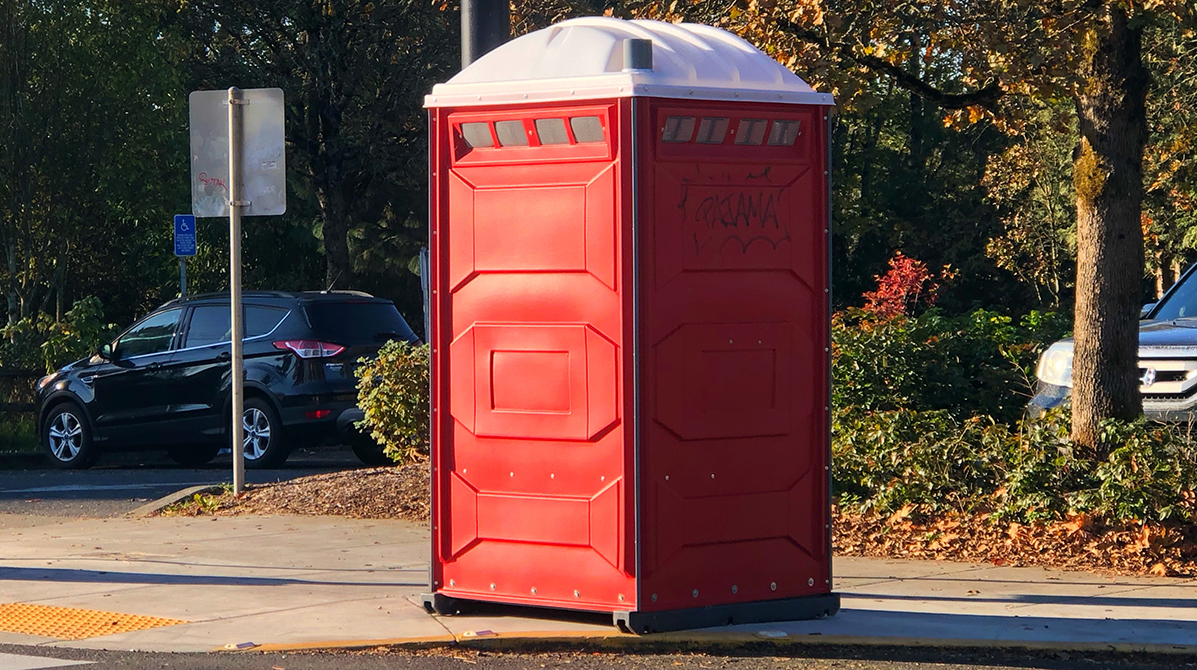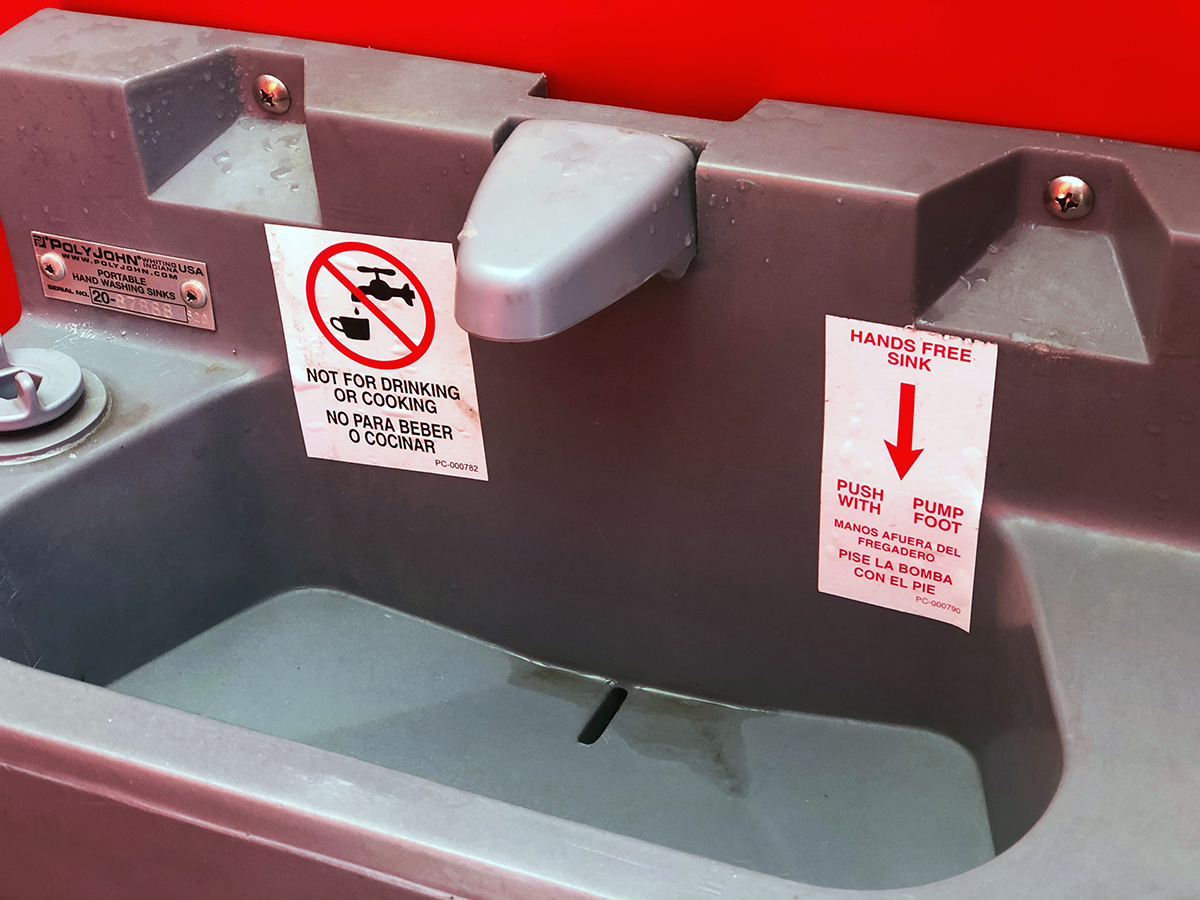Hand washing and hygiene are essential to preventing the spread of the coronavirus. Both the Centers for Disease Control and Prevention and the Multnomah County Health Department make this clear.
The United Nations declares access to water and sanitation a human right.
One might expect, then, that the city of Portland stepping up to this challenge would be celebrated. The Homelessness and Urban Camping Impact Reduction Program (HUCIRP) has sited 103 portable toilets equipped with sinks and soap around the region, funded through FEMA and the CARES Act.
FIND A HYGIENE STATION: View an interactive map of Portland restrooms and hand-washing sites
But, in fact, “the negative response from the public has been so egregious and prolific that regular operations for HUCIRP staff has to stop,” said Heather Hafer, public information officer for the Office of Management of Finance, which oversees HUCIRP. “All they can do is respond to the complaints.”
Most complaints are from housed residents who are angry about the placement of a portable toilet in their neighborhood.
It was a jarring experience for Hafer.
“I am flabbergasted by the vitriol coming out of people’s mouths.”
Katie Lindsay, a program coordinator for HUCIRP, described how she’s been besieged with angry phone calls so loud that they scare her children who are home while she works remotely.
It hasn’t just been words, though. When city contractors delivered a portable toilet to the Creston-Kenilworth neighborhood, a bystander cut a cable on a truck to prevent it from being lowered. The contractors called the police, only to have, they reported, Portland Police Officer Kevin Tully advise the bystander to lock the toilet so it couldn’t be used. In her incident report of the event, Lindsay said the officer told community members, “PPB would not follow up on the incidents of theft as it relates to the City property or in regards to the threats towards City vendors, City staff, or damage to vendor’s property.” After that toilet was stolen twice, city contractors installed a GPS tracking device. Stolen a third time, it was tracked to a neighborhood house.
That case stands out as egregious, but ire has emerged from many neighborhoods. Yet the sitings were anything but haphazard. Long focused on hygiene support for unhoused people, Lindsay was mentored by Lisa Hawash, a professor of social work who has led studies on hygiene and homelessness, and Lindsay brings that lineage of research to her work. She and other city staff studied maps of camps, and she went from camp to camp, interviewing people, her children in tow. Her oldest jotted notes. Her youngest tagged along in a red wagon.
“I was walking block by block and counting poop, Lindsay said. “Counting urine. Interviewing everyone.”
Some complaints addressed the fact that people were not visibly homeless next to the portable toilets. This is an enduring Catch-22. The sight of unhoused people can ignite rage, but when people are out of sight, they are not recognized as needing support. Lindsay points out that toilets were sited not only for tent campers, but for car campers, too.
There are families and elders living in cars across our region, she explained. The cars provide some shelter, but no hygiene support.
And, of course, it is not just unhoused people who need access to toilets and sinks. The concept of universal design helps here: If spaces are designed for the most impacted groups, others benefit as well. Case in point: Delivery drivers have scant access to restrooms while they race from address to address delivering packages, meals and groceries that ease the burden on many of us during COVID-19. They lack a public infrastructure to support their hygiene needs. These portable toilets help.
STREET ROOTS NEWS: During COVID-19 closures, hygiene needs increased as homeless resources shrank
Billionaires have increased their wealth by more than 25% during the pandemic, and the more affluent among us can jet into spas; the uneven access to hygiene is staggering.
Yet what city staffers hear is rage that they are offering hygiene support for the poor.
“It felt just awful,” said Lindsay. “I feel a lot of sadness for a population of individuals who feel very unwanted by the community. The stigma and anger are so powerful that (people registering complaints) can’t get to a place of empathy ... and they have power.”
What they haven’t heard is a strong chorus of compassion. Let’s give power to that communal voice. Street Roots is supporting a city campaign to remind the public that these toilets address a human right. Our Street Roots ambassador program has conducted 227 surveys of unhoused people to give the city feedback on the portable toilets.
Make it clear that you support our city addressing the human right to these portable toilets and sinks as a COVID-19 response, and always. Contact HUCIRP at reportpdx@portlandoregon.gov and let them know you stand with human rights.




